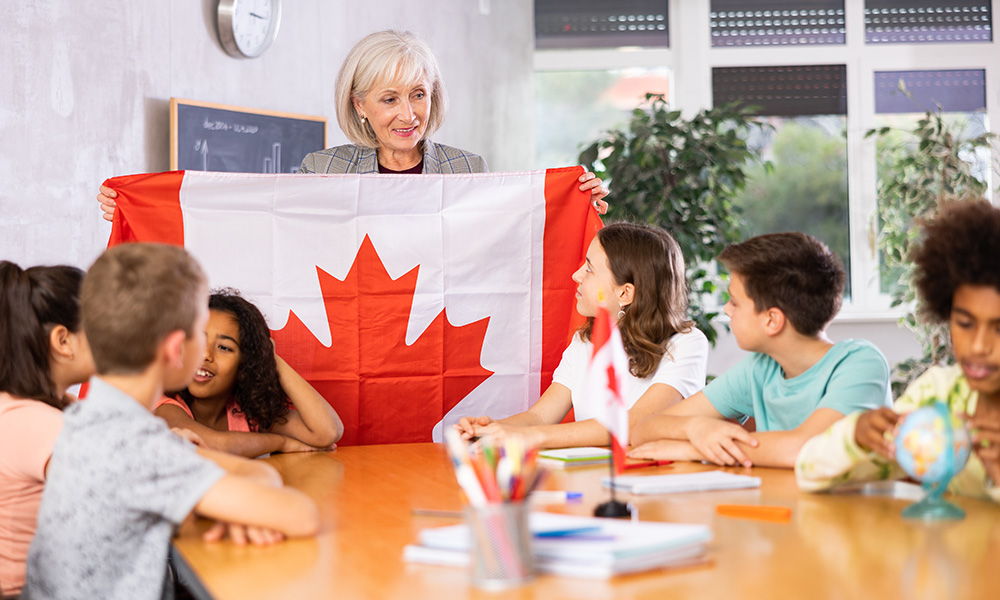
As new immigrants continue to boost Canada’s population, a UBCO researcher is looking at citizenship education and how Canadians feel about their country.
Two weeks ago, according to Statistics Canada, Canada’s population reached 40 million.
And thanks to immigration numbers, 2022 was the first year since the mid-1950s that the population—with a growth rate of almost three per cent—increased by more than one million people.
Dr. Catherine Broom, an Associate Professor with the Okanagan School of Education, studies local and global citizenship. Last fall she launched a survey asking Canadians their opinions on their country, the nation’s identity and citizenship education. So far, more than 500 people—predominantly young adults between the ages of 19 and 25 in Western Canada—have responded.
“As we approach Canada Day, some Canadians are celebrating and perhaps some are reflecting on the nature and form of citizenship and identity,” says Dr. Broom. “This survey could be a way to move forward in our understandings of who we are as a nation.”
Dr. Broom explains her early findings and encourages more Canadians to participate in the survey.
What does it mean to be Canadian?
Participants said they identify the maple leaf, nature, freedom, health care, inclusion and multiculturalism as images or symbols of Canada.
Given recent polls last month during the coronation of King Charles, it’s perhaps unsurprising that the Monarchy was less associated as a symbol of Canada.
Fifty-five per cent of respondents said they feel a sense of belonging and 36 per cent somewhat feel a sense of belonging to Canada. While 40 per cent are proud of Canada, and 43 per cent are somewhat proud of Canada, they associated more with their regional identity, rather than with a national identity.
What kind of society do participants envision for Canada?
They feel that a good Canadian should be kind, a good neighbour and work to improve society. The participants have strong visions and hopes for Canada and say that anti-racism education, inclusion, protecting the environment and addressing Indigenous reconciliation can bring Canadians together. Participants in the study envision an inclusive Canada that cares for all its citizens and its natural environment.
What are the main issues facing Canadians?
Participants suggest the main problems to address in Canada are housing, economic instability, climate change and racism. They are supportive of immigration, and 53 per cent feel that immigrants face challenges.
They identify issues related to citizenship as those addressing racism, the unmarked graves of children found at Residential Schools, low participation rates in social institutions and events like volunteering, and the need to have bonds that unite Canadians.
What do they feel should be taught in schools?
While the participants have broad views of citizenship, they believe that education in schools teaches about political citizenship, rights, nationhood and the environment. They want these areas to be taught, but strongly emphasize attention to social citizenship and being part of an inclusive community.
Can people still participate in your survey?
Yes, we are still collecting data and I’d like to hear from as many Canadians as possible. People can learn more about this research, find resources on citizenship education or fill out the survey at citizenshipeducation.ok.ubc.ca.
The survey is open to adults across Canada and is available in English and French. It has been funded by the Social Sciences and Humanities Research Council of Canada.